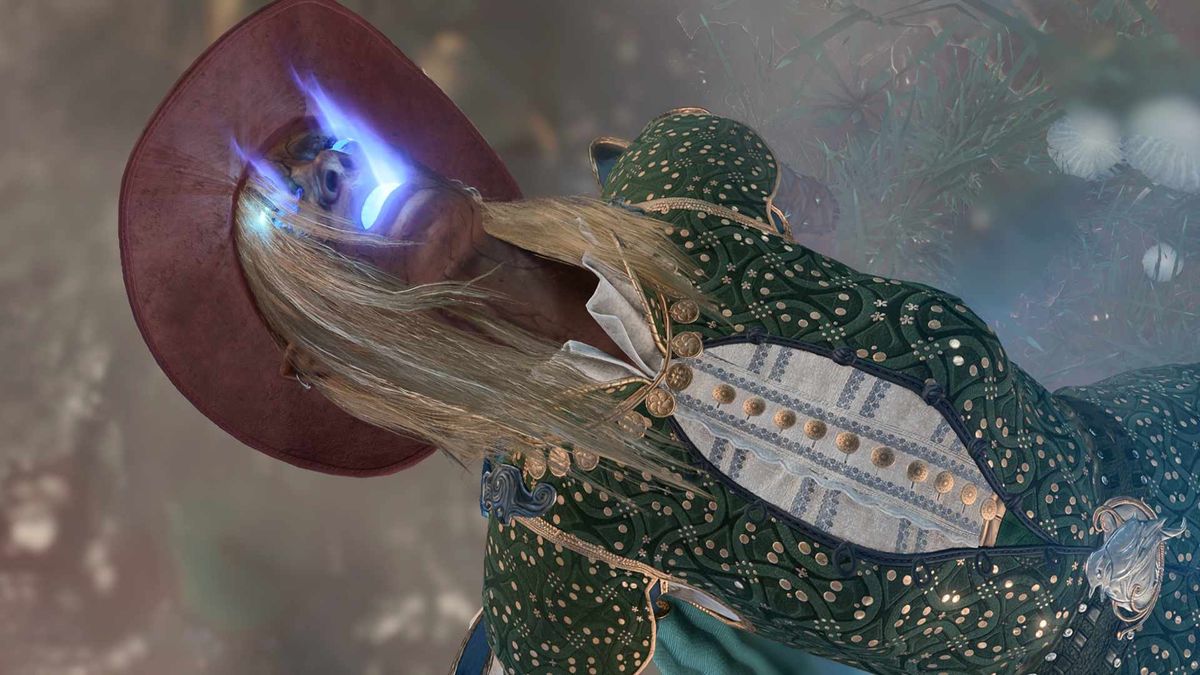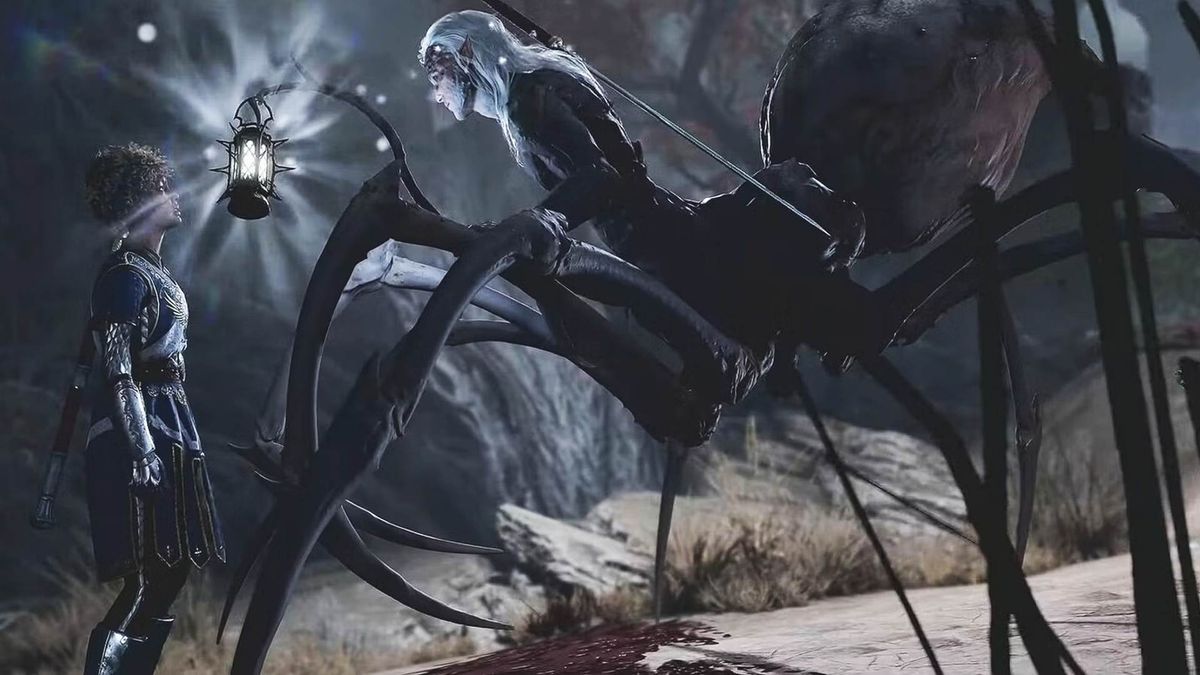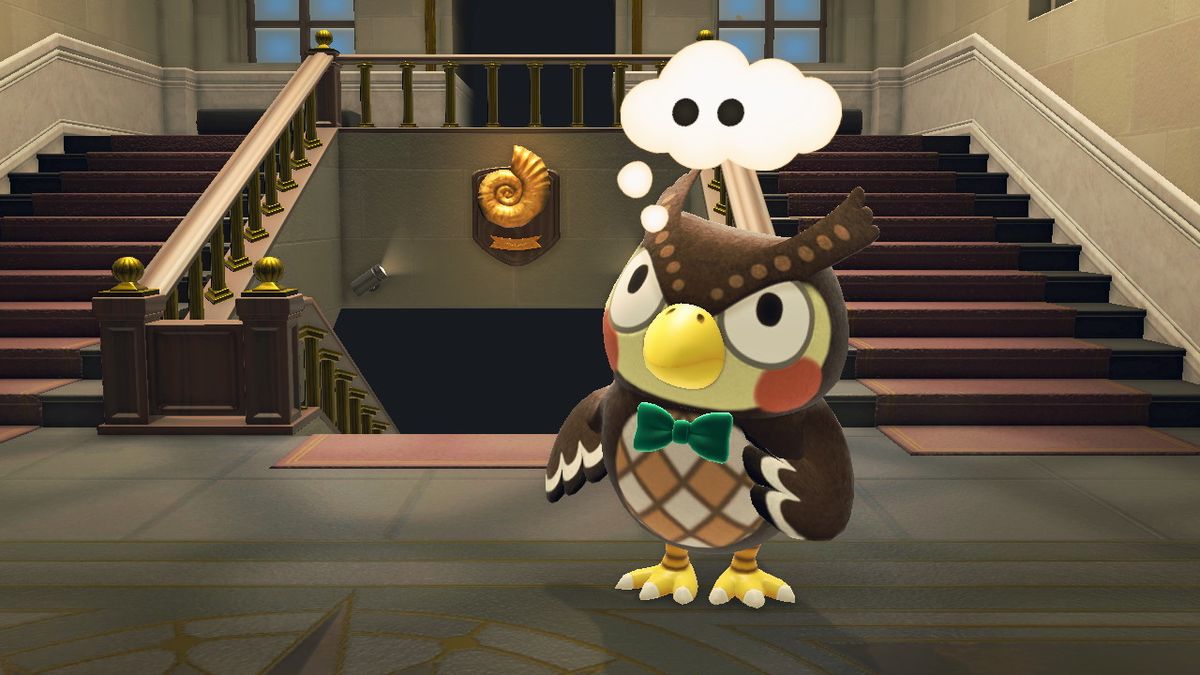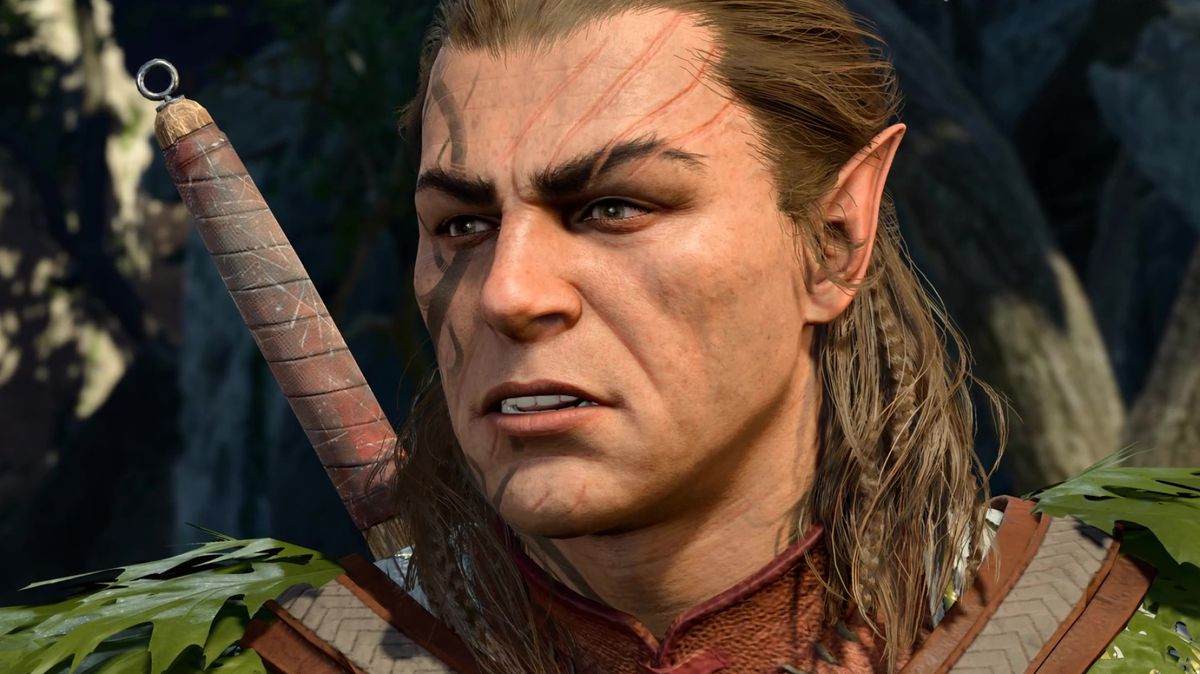Over the years, there have many, many Final Fantasy games. From core mainline titles to the off-shoot experiences that have built up the broader Final Fantasy universe, there really is something for everyone in this franchise. As an influential series that has garnered love from players around the world, Final Fantasy continues to capture our imaginations and tug at our heartstrings with its memorable characters to this day.
With the likes of Final Fantasy 16 and Final Fantasy 7 Remake Part 2 on the near horizon, we are all kinds of excited about what the future of the series will hold. But while we wait for new experiences to come our way, we’ve taken a look back at some of the most memorable games in the series. So, without further ado, here’s our pick of the best Final Fantasy games.
25. Final Fantasy Mystic Quest

Final Fantasy was the series that finally drove Japanese role-playing games into global consciousness – we’ll get to that PlayStation game in due course – but it took many tries. Squaresoft made Mystic Quest from the ground up as a gateway drug, a simplified version of the trademark fantasy adventure story and character raising mix that made the genre so rich in the ‘80s. The result is a charming oddity. At the time, Mystic Quest felt too basic in the wake of Final Fantasy 4. Today it plays like particularly artful indie RPGs like Cthulhu Saves the World, boiling down RPG progress to its essentials and surrounding them with bulbous cartoon art. Bonus: Ryuji Sasai and Yasuhiro Kawakami turned in one of the best Square soundtracks of all time here.
24. Final Fantasy Origins

How to play Final Fantasy 1 and 2 today is a complicated question. The NES versions are nearly unplayable by modern standards due to bugs, unfriendly design, and brutal level grind requirements. Some re-releases, like the gorgeous but far too easy Game Boy Advance and PSP versions, aren’t ideal either. In order to experience the elegant, challenging, and admirably simple Final Fantasy 1 under the best circumstances, the PS1 Final Fantasy Origins version is the best. Streamlined but still difficult, it is the best preservation of the strange role-playing that made the series a success. There’s still nothing quite like playing through the game’s first dungeon, a quest to defeat a dangerous warlord on behalf of a kingdom that feels like the end of another game. Here it leads into a striking (albeit dated) intro sequence, something that remains a series staple. Origins has the added benefit of a playable version of the utterly bizarre Final Fantasy 2, whose cruel leveling system basically requires you to attack yourself to build defensive stats.
23. Theatrhythm Final Fantasy: Curtain Call

Final Fantasy’s music is essential to the experience of the games. There’s a damn good reason that orchestral performances run around the globe for years on end. The aural tapestry of these games, from their earliest entries on, informs every moment you’re playing. “Prelude,” the series’ famous theme song by Nobuo Uematsu, embodies both the delicate thoughtfulness and brassy spirit that makes Final Fantasy itself. Theatrhythm Final Fantasy: Curtain Call inverts the relationship between music and game to great effect. It’s the music that you play, using the 3DS’ stylus to execute timed taps and swipes, and building a party of classic FF characters and building them up is the aesthetic background giving the game depth and flavor. Like the original Theatrhythm, Curtain Call takes players on a journey through some of the series’ most well-known memorable scenes during a musical adventures across a world map or fighting monsters with the power of song. The first Theatrhythm had the obvious musical choices, i.e. One-Winged Angel and Melodies of Life, while Curtain Call introduced a larger, more eclectic mix of songs.
22. Final Fantasy Crystal Chronicles: The Crystal Bearers

The Nintendo Wii, with its diminutive horsepower and motion controller, is not where you’d expect Final Fantasy to get experimental but it hosted a number of strange offshoots. The best of these was Crystal Bearers, a semi-open world action RPG with a smug hero with a plush fur jacket and telekinetic powers. The story of roguish adventurer turned people’s champion isn’t wholly original or always well told – Crystal Bearers feels like it lost a lot of content getting out the door – but there’s a sweet charm that permeates the whole game and its unusual take on steampunk fantasy is easy on the eyes despite the Wii’s graphical deficiencies. The game ends with a handwritten thank you note from the director flashing on screen. Flawed, yes, but a labor of love that’s wonderful to experience.
21. Final Fantasy 13

Here’s the reality: most popular criticisms of Final Fantasy 13 are also applicable to the series’ most-loved entries. Final Fantasy 4 and 10 are just as restrictive in terms of exploration, Final Fantasy 8 is just as oblique in its storytelling. Final Fantasy 13’s biggest crime, and potentially the root of its notorious rep, is that it’s a very chilly game. The world of Cocoon and Gran Pulse is as cold and unforgiving as the crystals that dominate its landscape, and the crew of burdened misfits we guide through it provide little warmth or insight into its culture to humanize it. Embracing the alienness of Final Fantasy 13, though, reveals a gorgeous piece of science fiction with sumptuous art, Masashi Hamauzu’s best soundtrack ever, and a cathartic ending that gives the game a beating heart. The excellent battle system, which admittedly isn’t fully utilized soon enough in the game, was given proper room to grow in 13-2 and Lightning Returns.
20. Crisis Core: Final Fantasy 7

The great promise of Crisis Core was that it would help clarify the murky history of Sephiroth, Cloud, Aeris and the occasionally seen Zack Fair from Final Fantasy 7. It only partially succeeded on that front because this PSP classic, arguably the best exclusive that remains stuck on the portable, presents its tale of betrayal as obliquely as its predecessor. It’s equally beautiful and entrancing, though, and its action is totally unique. As Zack, you fight monsters and mechanized soldiers with a giant sword but the real star is the magic system where you mix and match abilities to fuse new ones. Plus: a giant slot machine pops up in the middle of battle and matching character portraits gives you super attacks. It sounds dumb, but feels great in practice. Just like Final Fantasy 7.
19. Final Fantasy Tactics Advance

From the start, Final Fantasy felt more adult than its inspiration Dragon Quest. The gnarly monsters, flowing character art and more ethereal prog music drifted far from the big eyed, bouncy slimes and buoyant music of Quest. Final Fantasy Tactics Advance embraced young players, though, and didn’t dumb down its action in the process. Regular grade school kids find an old book actually called Final Fantasy and are sucked into its world. From there you build an army, raising up individual units and pitting them against each other in strategic confrontations on colorful, grid-based maps. Beneath that, though, is a story about how young people confront issues like bullying, poverty, and the pressure to excel in school. It also created a novel way to force players to change up how they played. Every battle is overseen by a judge that places different restrictions (no magic, only healing items, etc.) to make you creatively reconsider your plans.
18. Final Fantasy 11

In the pantheon of MMOs, Final Fantasy 11 is almost irredeemably dated nowadays. Its devoted followers keep playing, but a myriad of games have surpassed its demanding, team-based questing at this point, including its own successor, Final Fantasy 14. But Final Fantasy 11’s artistry is still something to behold. The muted color palette, the design of its multiple playable races, and the game’s deliberate pacing make it feel fully realized and alive in a way that its contemporaries like WoW and Everquest never did. It may not play like core Final Fantasy games, but it captures their essence.
17. Final Fantasy 3

Job System is a familiar term in RPG town. It refers to gameplay where you can change a character’s class or type so they can learn new abilities and classifications on the fly, an easy to understand spin on pen and paper role-playing that allows for deep customization. This NES game is where the Job System as we know it today was born. Turning back to the largely personality free cast of the original Final Fantasy after the story centric Final Fantasy 2, 3 is an archetypal story about good versus evil with pretty art and even prettier music. It was the ability to grind out new jobs and learn new skills that made it special. Final Fantasy 3 was remade for DS in 2006 and later ported to PC and mobile devices, but the NES version is, while more punishing to play, more visually and musically rich.
16. Final Fantasy Crystal Chronicles
From Final Fantasy 1 to 15, many of the games in the series have focused intently on the interplay between four people. In this unusual Gamecube spinoff, Square changed that dynamic to an interaction between four cooperating players rather than characters in a party. The resulting dungeon crawler was physically difficult to play, requiring four Game Boy Advances and specialized cords in addition to a Gamecube, but offered an unparalleled couch co-op experience. Anyone who’s played Crystal Chronicles to the end with friends knows it really is quite an experience. In addition to the great play, Crystal Chronicles benefits from an absolutely lovely Celtic folk soundtrack and bucolic visual motif.
15. Final Fantasy 15

Ten years in the making and burdened with rekindling the series’ prestige, Final Fantasy 15 was saddled with expectations that were impossible to meet long before it came out. When it did, though, it managed to do precisely what it set out to: modernize Final Fantasy as a series and deliver something inviting to both new players and old school fans alike. Story-wise, Final Fantasy 15 drifts into the same realm as many post-PS1 entries with many big plotlines that don’t always land. The game’s open-world structure of wandering around hunting monsters actually feeds perfectly into its best feature: the relationship between its four primary characters. Ignis, Gladiolus, Prompto, and their liege Noctis are a fun group to explore a world of mountain-sized walking turtles and ghost sword-commanding kings.
14. Final Fantasy 10

Still the model for Final Fantasy’s look today, Final Fantasy 10 marked many firsts. It was the first PlayStation 2 entry in the series, the first mainline FF to have songs not written by Nobuo Uematsu, and the first Final Fantasy to sport voice performances rather than silent text. Today, the game feels somewhat stiff, with cramped environments and stilted pacing. But the story revolving around Tidus is memorable in its own way, with a cast of characters you won’t soon forget. Final Fantasy 10 itself is admirably dream-like.
13. Final Fantasy 5

Final Fantasy 5 metamorphosed Final Fantasy 3’s pupal job system into a beautiful pixelated butterfly. Featuring over twenty possible vocations – from the traditional (Fighter, White Mage, Black Mage) to the creative (Dancer, Chemist, Ninja) to the downright peculiar ( …Geomancer? Mime?) – FF5 exploded the series’ team-building possibilities. That’s all before it busts out the Freelancer job class, which lets players combine select abilities from different jobs and create an entirely new beast to unleash upon the world. For the obsessed fiddler, it’s the perfect role-playing game. Just don’t go in expecting a deep story.
12. Final Fantasy 10-2

Final Fantasy 10-2 is regularly criticized for being too goofy for its own good. And it certainly is silly in some respects. In continuing Final Fantasy 10’s story, though, 10-2 found the three things 10 itself was missing: a sense of humor, a well-paced story, and a more interesting battle system. While your party is only three characters, Dress Spheres offer a mechanically rich version of the job system that’s as fun to watch as it is to tinker with. It also makes 10’s world feel more open than the first time around, making for a more joyful journey.
11. Final Fantasy Adventure

The world of Final Fantasy spinoffs is tricky, especially in the case of its very first spinoff. Originally called Final Fantasy Gaiden: Seiken Densetsu, this Game Boy game ultimately spawned the Secret of Mana series. While it’s an action RPG with more in common with Zelda than old-school Final Fantasy, it does capture the tone and feel of the series. This makes sense in context: Final Fantasy Adventure was the directorial debut of Yoshinori Kitase, who went on to direct FF6, 7, 10, 13, and produce 15. Like those games, Adventure can feel a little different. One second you’re in a gladiatorial arena, the next you’re in a vampire mansion. The whole game captures a powerful feeling of stoicism, though. Even on the Game Boy, the emotional turmoil of Kitase’s style of Final Fantasy shone through. It’s been remade numerous times, but the original remains the best.
10. Final Fantasy 8

Final Fantasy 8’s story is certainly a memorable one. It also still stays pretty relatable, and the adventure is gorgeous to boot. Squall Leonhart and his heroic friends really do feel like teenagers trying to overcome impossible odds, and they’re as realistically sulky, confused, and prone to illogic outbursts as real teens. The series itself is known for appealing to teen angst. This is the entry that nails the actual experience as part of its tale.
9. Lightning Returns: Final Fantasy 13

Taking place so far into the future that returning characters barely resemble their original incarnations, Lightning Returns is simultaneously the strangest Final Fantasy game and also one of its most moving. The story revolves around the very last days of a dying universe where most of the physical world has disappeared and no one has died for 500 years. Charged with rescuing as many souls as possible before everything ends for good, you play as a time-bending Lightning who’s racked by doubt and fear about her mission. Final Fantasy’s take on science fiction typically stays in the land of Star Wars fun, but Lightning Returns veers hard into the philosophizing of sci-fi and it’s better for it. And somehow the reduction of playable characters to just one makes the 13 series battle system even better. With a touch of dress sphere flair, Lightning fights using different costumes whose different abilities result in battles that are faster but even more strategic than those in 13.
8. Final Fantasy 9

At the time of its release, Final Fantasy 9 was billed as a return to the quaint fantasy motifs of the original NES games. Nobuo Uematsu’s score was bouncy and classical, a pudgy black mage with his conical hat and glowing eyes figured prominently. As the years have passed, though, it’s become clear just how much of an original statement Final Fantasy 9 was. Its kingdom involved a fair amount of swords and sorcery, but its squat characters and soft story about outcasts finding family together hits honest, quiet notes inside the traditional bombast. Brutal loading times and low resolution kept its artful presentation inaccessible on PS1 but recent re-releases on Steam and a PSN version that speed up load times preserve it expertly.
7. Final Fantasy 4

This beloved Super Nintendo game marked Final Fantasy’s shift from a focus on character building to operatic storytelling. Rather than feeling awkward and stilted in the transition, Final Fantasy 4 feels like a series finally finding its true voice. The tale is a perfect mix of hoary tropes and real weirdness. An imperial soldier questions the cruelty of his leaders and gathers a band of worldly warriors to take on a hidden evil; pretty normal, right? Eventually your crew travels from an ephemeral spirit world of summonable monsters where time works differently to the moon on a whale-shaped spaceship. Couple that with challenging dungeon design and a diverse cast of well-defined characters with unique skills, and you have a 1991 RPG that endures to this day. The 3D remake for Nintendo DS is a high quality game that is one of the best hard JRPGs around, but the Game Boy Advance remake is the best mix of the SNES original and new content thanks to its new dungeons for each individual character.
6. Final Fantasy Tactics: War of the Lions

Final Fantasy Tactics is, hard as this may be to believe, the most self-serious, convoluted Final Fantasy ever made. The tale of two soldiers raised together, embroiled in brutal regional conflicts, uncover a plot that makes villains out of a thinly-veiled version of the Catholic church and reveal that the messiah was a supernatural warlord but also demonic and bent on enslaving humanity. Sunny stuff! But the heavy handed politics of Tactics is a perfect fit for its grueling, addictive battles. Slowly building an army over years in the game world, leveling individuals in distinct warrior disciplines and executing a flawless strategy, is unforgettable. It boils down Final Fantasy to its raw elements – character drama and battles – and comes out like tempered steel. War of the Lions, the remake that first appeared on PSP, is definitive thanks to its lush animated scenes and the inclusion of Balthier from Final Fantasy 12.
5. Final Fantasy 7 Remake

Creating a remake of one of the most iconic Final Fantasy entries is no small task, but Cloud’s return certainly delivered in more ways than one. As a reimagining of the classic 1997 release, Final Fantasy 7 Remake took us back to Midgar with its cast of memorable characters. As the game explores the opening of the original in more depth, we are able to spend more time with the characters and see more sides to them during the opening events. As a loving recreation of the influential RPG that stays true to the spirit of the original, it’s only made all the better thanks to its beautiful visuals that allow us to experience the locales and character designs all the more. It really does strike a difficult balance of appealing to longtime fans and newcomers, and it has undoubtedly introduced a new generation to Cloud’s adventure.
4. Final Fantasy 14

Final Fantasy 14 has come a long way since it first launched, with a myriad of updates and fantastic expansions that have really elevated the game to greater heights. And the passionate, expansive player base is a testament to just how much the game has grown over the years. The classes are versatile and easily interchangeable, the battle system is as intuitive, and the world is a vibrant mix of classic Final Fantasy features. Characters are equally customizable at every stage of play: drop an axe and grab a bow, and your Warrior shifts seamlessly into a Bard. Then, when you have high-caliber visuals and a score worthy of the Final Fantasy name to accentuate the experience, 14 offers a world that different types of players will want to explore for a long time.
3. Final Fantasy 12

Star Wars’ influence on Final Fantasy is hard to overstate. From ancillary characters named Biggs and Wedge to overarching themes like a conflict between spiritual pacifism and technological aggression, there’s a lot of George Lucas in Hironobu Sakaguchi’s story. While Final Fantasy 2 flirted with elements of the original Star Wars’ plot, Final Fantasy 12 is practically a beat for beat remake of the 1977 film. An evil empire takes a young princess with a magical lineage captive. An idealistic, naive young man teams up with a profit obsessed, utterly charming thief with a heart of gold and his very tall alien partner. The militaristic evil government is actually backed by a supernatural evil force and the good guys must topple its super weapon at the end. There are super cool bad guys in radical helmets carrying totally sweet swords. Much in the way that Star Wars borrowed the basics of Akira Kurosawa’s Hidden Fortresss and married them to an instantly pleasurable sci-fi milieu, Final Fantasy 12 does so by pouring on thick gobs of its unique aesthetic. Tying all of this together is a wholly reimagined RPG combat system wherein you map out your characters’ behavior rather than their individual actions. Divisive on release, Final Fantasy 12 continues to find new fans, luring them in using Star Wars’ basics but seducing them with alien style.
2. Final Fantasy 6

“I supposed that action games, for example, relied on sense and instinct while RPGs appealed more to reason and logic,” director Yoshinori Kitase told Edge Magazine (opens in new tab), reflecting on the creation of Final Fantasy 6. “What made the Final Fantasy series so innovative was the emotion realized from drama within the game in addition to those other elements. I believe this innovation was more apparent than ever before in the sixth game. This game really brought that creative goal into full bloom.” More than 20 years on from its release, the last Super Nintendo Final Fantasy remains the only entry in the series to not only include every disparate element of the series in one game but also feel flawlessly executed as a result. The playable cast is enormous, with 14 characters (some of which are hidden), and all of them distinct from one another. The operatic story and leitmotif-infused score shifts between them, weaving a story about a mad fop breaking the very nature of reality and what it takes to finally fix it. The tiny sprite characters are equally cute and expressive, realizing complex scenes of human drama using simple tools.
1. Final Fantasy 7

Play it today, start to finish, and Final Fantasy 7’s ambition is gobsmacking. Squaresoft, series creator Hironobu Sakaguchi, and director Yoshinori Kitase attempted to make a Final Fantasy about the very nature of life, fitting every possible thing they could think of into a single game. As one of the most influential JRPGS to come to the PlayStation, a whole generation of players were introduced to the RPG genre thanks to Cloud. With a cast of characters who have found their way into popular culture, a memorable, in-depth story, and its own turned-based combat, Final Fantasy 7’s impact is still being felt and talked about to this day – partly thanks to the release of the steller Final Fantasy 7 Remake. The classic 1997 game even made it into our pick of the best games of all time.
 Games News games, movies and TV you love.
Games News games, movies and TV you love.



